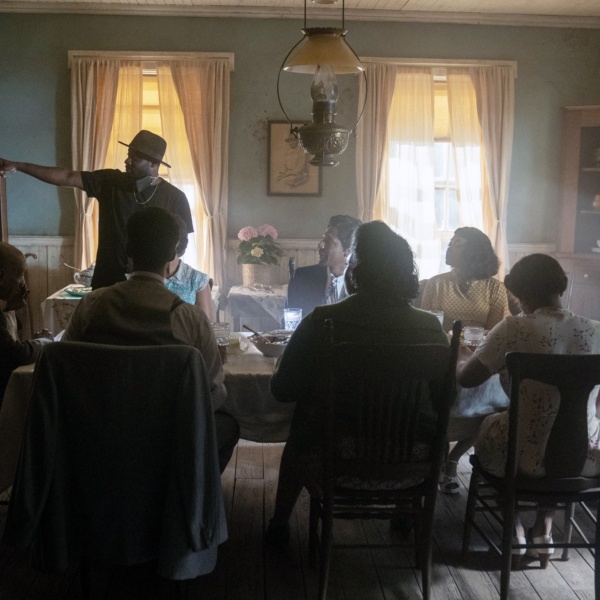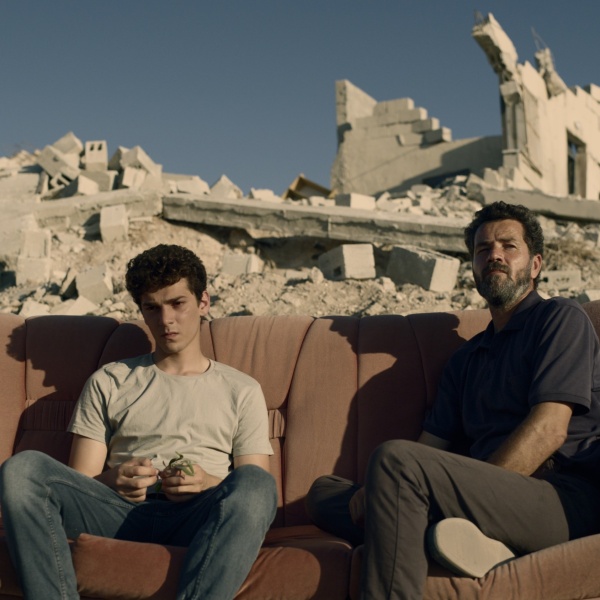
Marvel’s most patriotic superhero, Captain America, is finally getting his just due on the big screen after years of attempts and misfires like the corny 1990 release you’ve probably never heard of (count yourself lucky) featuring Matt Salinger in the red, white and blue man tights.
In the late ‘90s, Marvel was on the verge of a proper big budget take on Cap, but legal entanglements over the ownership of the character further delayed and ultimately shelved the project. Once that mess was settled in 2003, Marvel revved up development on a Cap project once again, but various screenplay attempts and a reported pitch from Jon Favreau to direct the film as a comedy never quite sat right with the head honchos at Marvel. Finally, on July 22nd, “Captain America: The First Avenger,” will hit screens with Joe Johnston at the helm and Chris Evans stepping behind the starred shield. The release will be the predecessor to next year’s highly anticipated “The Avengers” movie from director Joss Whedon, which will put Cap alongside folks like Hulk, Iron Man and Thor.
This weekend The Playlist sat down with the men who penned the script that finally catapulted Cap out of development hell and onto the big screen, screenwriters Christopher Marcus and Stephen McFeely. In case you missed it, they talked to us about their plans and what their approach will be in tackling a possible sequel. And here’s the rest of our conversation with the pair about the film, the importance of the period setting to the character of Steve Rogers and more.

The Playlist: There have been so many attempts and various reasons that a “Captain America” movie hasn’t happened over the years. What made you two the guys to finally bring Captain America to life on screen?
Christopher Marcus: Well, we definitely went after it. I think it was the period nature of it. Marvel was really committed to making a period movie and we were only interested in starting it there. The period is everything for him. It is the complete explanation as to why he exists. If you were to invent him at any other time, he’s not the Captain America we know and love any more. He’s something else.
Stephen McFeely: You only get one shot at doing that. In a strange way, we’re doing the story that most people don’t understand about Captain America. When Stan Lee brought him back in 1963, he’s the man out of time and that’s one of his big characteristics. We’re doing when he is in his own time. Marvel was brave enough to say, “period be damned, we’re going to tell the best Cap story we can.”
Were you guys longtime Captain America fans before this?
McFeely: Chris was more of a comic book guy.
Marcus: Yeah, I’ve been a longtime Marvel fan. I had respect for Cap, but I had never gotten into him the way I have now.
McFeely: Who were you into, Spider-Man?
Marcus: Yeah, it was probably Spider-Man. Certain X-Men, though not all. Now I’m obsessed with Cap.
He’s a tricky character, similar in a sense to Superman, that flawless character — no drinking problems, no hidden demons — that’s almost so good that modern audiences might be somewhat cynical about this do-gooder.
McFeely: That’s what makes this movie different. You’re absolutely right. He’s the least angsty of the Marvel Universe…his big characteristic, the man out of time — “What happened to the values I knew, the people I loved” — all that; that’s saved for “The Avengers” and going forward. So what we concentrated on was the 98-pound scrawny guy who gets this impressive gift. It doesn’t change his brain. He’s still who he was when he was raised. 
In terms of Steve Rogers and his patriotic gung-ho attitude, it’s a tricky thing to connect that feeling with modern audiences.
McFeely: We definitely wanted to honor the period and the guys who fought during the period. Maybe it would be different now, you know, war breaks out and depending on who you’re fighting, is everyone going to sign up and say, “I’ll go over,” but in 1941-42 after Pearl Harbor, people raised their hands and said, “Yes, I’m going to go do that.” It was the thing you did. And we wanted to honor that. We weren’t sure we had to explain it much. I think you just bought into it. Part of it is Chris’ delivery and part of it is the period and the tone we set it in.
Marcus: It works so well with his character. You’ve got a guy who is an orphan and who has been bullied. Wanting to go and prove himself and also prevent other people from going through what he’s gone through his whole life slots in perfectly with WWII.
Once Chris Evans came aboard, were there certain modifications made to the script to accommodate what he would bring to the role?
Marcus: Chris was really committed to that sort of straight Steve Rogers. In writing it, we had certainly reflectively given him a few more wise cracks than he needed. Chris was like, you know, “You don’t need it and it doesn’t fit the character.”
McFeely: He was very clear on his version. He wanted to honor 70 years of comics in the same way we did. Sometimes we would come up with a killer line and he would say, “Yeah, but is it a killer line for Steve Rogers?” And I would say, 80 percent of the time, he was spot on. It was a pleasure to have him do it. And he’s so likable.
You balance the comic relief nicely without straying into parody territory and divide those lighter moments pretty evenly onto the shoulders of Stanley Tucci, Dominic Cooper and Tommy Lee Jones.
McFeely: We wanted it all to come out of character. We never wanted it to come out of some sort of desperate need to have a joke here or it’s not funny enough. If something amusing happens because characters interact and there’s friction, that’s the best humor for us. We hate it when it’s forced and wedged in for other reasons outside of the movie.
“Captain America: The First Avenger” hits theaters this Friday, July 22nd.




